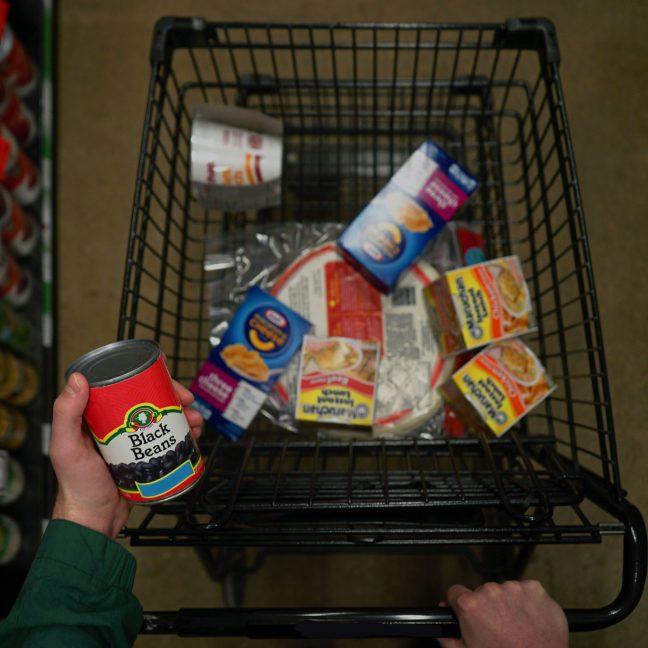In situations as odd and stressful as the ones we encounter in college, students are apt to find shortcuts to make life a little less difficult. Whether it’s taking the 80 to avoid a walk up Bascom Hill or realizing how easy it is to spend mom and dad’s money on beer by using a WisCard at Der Rathskeller, Badgers have a knack for finding little things that make college life easier.
Naturally, eating — everyone’s favorite pastime — is no exception. In 2010, in an unassuming dorm room here on campus, EatStreet was born. Though it came from humble beginnings, Madison’s homegrown food ordering and delivery app has become a significant figure in food delivery services. Though many University of Wisconsin students know it to be a quick and easy way to grab dinner, EatStreet connects diners in more than 250 cities to more than 15,000 restaurants. Because of their success, one of EatStreet’s founders, Matt Howard, was a recipient of Madison Magazine’s 2017 Best of Madison Business Award.
Due to its overwhelming success, EatStreet recently announced it’s expanding across Wisconsin, to Green Bay, Appleton, Eau Claire, La Crosse and several Milwaukee suburbs, creating around 300 new jobs statewide. To celebrate, EatStreet launched its “Haulin’ Ass for Hunger Tour” Oct. 29. EatStreet workers loaded a custom double-decker bus and will traverse the state, dropping off $20,000 worth of donations to Wisconsin food pantries. For the 609,306 Wisconsinites struggling with hunger, the aid is invaluable.
Those who frequently use EatStreet’s services can feel good knowing they’re supporting a company with such charitable, wholesome values. EatStreet is popular among UW students not just for its convenience, but because people in our age group favor companies that are socially responsible.
EatStreet is lauded for its social responsibility by those who understand it most. The kickoff of the tour started at the Fritz Food Pantry located in Madison’s Goodman Community Center. Jon Lica, the corporate giving manager of the center, said, “An ideal corporate partnership is when a company contributes financially, employees get involved as volunteers and they advocate for our cause in the community. EatStreet hits all three on the head.”
The importance of social responsibility has grown significantly in the business world, enough so to warrant its own acronym — CSR, or corporate social responsibility. CSR, or “a company’s sense of responsibility towards the community and environment (both ecological and social) in which it operates,” was originally popularized in the 1960s, but is now the accepted and encouraged business model of today. Several retail brands, like TOMS, Pura Vida and Warby Parker give to causes or uplift struggling communities through their business model and are quite popular among students.
When companies adhere to CSR, their reputation improves. Profitability, growth and sustainability increase as well. But what’s most beneficial about CSR is the culture shift it prompts. CSR leads to greater avoidance of the exploitation of labor, bribery and corruption, all of which are common in large corporations. Countries prone to this negative behavior would find it difficult to compete when their standards are lower, while under-served communities are finally given the aid they so desperately need.
At least, that’s the ideal. We still pay for services from corporations that are significantly less ethical and responsible than Madison’s beloved EatStreet. Take Amazon, for example. Though the corporation has become known for its toxic corporate environment, horrendous working conditions and poor practices overall, it’s a go-to option for students to buy textbooks, clothes or anything else they might need. The city of Madison briefly fought for the chance to be Amazon’s second new headquarters. In a market with increasingly more socially responsible business models from which we can patron, why do we choose to patron socially responsible businesses for some needs and unethical companies for others? Because it’s easy. But just because something is easy doesn’t mean it’s right.
Choosing the easiest, most accessible option is a nice default. But we cannot expect all companies to be socially responsible until we are all socially responsible consumers. If the customer is always right, we should show companies what is right by refusing to support businesses with reprehensible behavior and supporting socially responsible businesses instead. It might not be the easiest for customers, especially students like us, but it’s the right thing to do. And although it’s not the easiest for businesses to adhere to a CSR model, it’s definitely possible and creates great success. EatStreet is proof a company can be socially responsible and successful, not just in Wisconsin, but across America.
Most importantly, both consumers and corporations are obligated to be socially responsible — the presence of one does not excuse the absence of another.
Abigail Steinberg (asteinberg@badgerherald.com) is a sophomore majoring in political science and intending to major in journalism.


